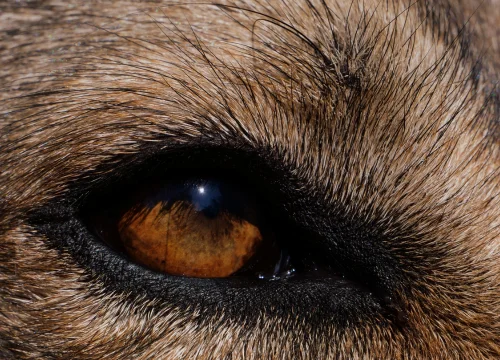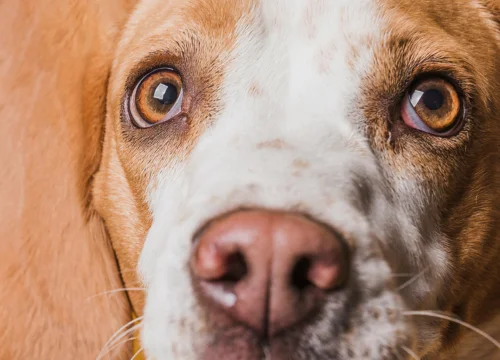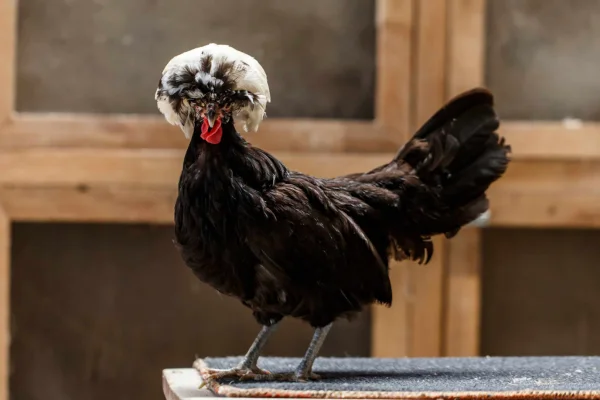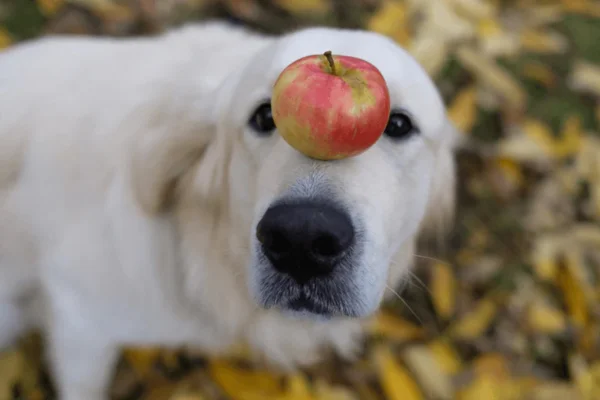Caring for Your Dog's Eyes: Keeping Your Best Friend's Vision Healthy
The eyes are a vital part of your dog's health and well-being, and it's essential to maintain a regular eye care routine to ensure that their vision remains healthy throughout their life. In this article, we'll explore the importance of caring for your dog's eyes, signs of eye problems and preventative measures you can take to protect your furry friend's vision.
The Importance of Eye Care
Just like humans, dogs depend on healthy eyesight to navigate the world around them. Their eyes are sensitive and susceptible to a variety of conditions that can affect their quality of life. Regularly caring for your dog's eyes can help detect eye problems early on and ensure rapid intervention when necessary.
Signs of Eye Problems in Dogs
It is important to watch out for signs of eye problems in your dog and seek immediate veterinary attention if you notice any of the following symptoms:
Contents
- Redness or swelling in the eyesPersistent redness or swelling around the eyes can indicate a variety of conditions, including infections or injuries.
- Excessive secretion or dischargeAbnormal eye discharge, such as pus or mucus, can be a sign of infection or irritation.
- Itching or irritationIf your dog is scratching his eyes frequently or showing signs of discomfort, it may be indicative of an underlying condition that requires attention.
- Difficulty opening or closing your eyesDifficulty opening or closing the eyes may indicate pain or discomfort in the eyes.
- Changes in BehaviorChanges in your dog's behavior, such as bumping into objects or avoiding light, can be signs of vision problems.

Preventive Measures to Maintain Your Eyes Dog Healthy
To keep your dog's eyes healthy and prevent eye problems, consider the following preventive measures:
- Regular cleaningGently wipe around your dog's eyes daily to remove any dirt, dried tears or secretions. Use a damp cloth or soft eye cleaning pads.
- Regular Eye Exams: Include eye examinations as part of your regular visits to the vet. Your vet can detect early eye problems and recommend appropriate treatment.
- Protection against irritantsAvoid your dog coming into contact with irritating substances such as household chemicals, cigarette smoke or toxic plants that can cause eye irritation.
- Proper Nutrition: Feed your dog a balanced diet rich in essential nutrients, including vitamins A and E, which are important for eye health.
- Moderate Exercise: Promote regular exercise to keep your dog physically fit and healthy. Moderate exercise can help reduce the risk of obesity, which can contribute to eye problems.
Main Eye Diseases in Dogs
- ConjunctivitisConjunctivitis is an inflammation of the outer membrane of the eye, known as the conjunctiva. It can be caused by bacterial or viral infections, allergies or environmental irritants. Symptoms include redness, swelling, eye discharge and itching.
- Corneal Ulcer: A corneal ulcer is a wound on the transparent outer layer of the eye, the cornea. It can be caused by traumatic injuries, a foreign body in the eye, infections or conditions such as dry eye. Symptoms include pain, eye redness, excessive tearing and sensitivity to light.
- GlaucomaGlaucoma is a condition characterized by increased pressure inside the eye, which can lead to damage to the optic nerve and loss of vision. It is a serious condition that can lead to blindness if not treated properly. Symptoms include eye pain, red eyes, dilated pupils and loss of vision.
- CataractCataract is an opacity in the lens of the eye, which can result in blurred vision or loss of sight. It can be congenital (present from birth) or acquired due to factors such as age, diabetes or eye injuries. Symptoms include blurred vision, white or gray pupils and difficulty seeing.
- Dry Eye (Keratoconjunctivitis Sicca)Dry eye occurs when there is insufficient tear production or inadequate tear quality, leading to eye irritation and inflammation. It can be caused by genetic factors, autoimmune diseases, medication or environmental conditions. Symptoms include redness, thick eye discharge, itching and sensitivity to light.
- Entropion and Ectropion: Entropion is a condition in which the eyelid folds inwards, irritating the surface of the eye. Ectropion, on the other hand, is when the eyelid turns outwards, exposing the conjunctiva. Both conditions can cause irritation, excessive tearing and predispose the dog to eye infections.
- UveitisUveitis is an inflammation of the uvea, the middle layer of the eye, which includes the iris, ciliary body and choroid. It can be caused by infections, autoimmune diseases, eye trauma or systemic conditions. Symptoms include eye pain, red eyes, sensitivity to light and changes in the color of the iris.
- Pannus (chronic superficial keratitis)Pannus is a chronic inflammatory condition of the cornea, common in breeds such as German Shepherds and Collies. It is caused by an autoimmune reaction to exposure to UV light. Symptoms include corneal opacity, abnormal vascularization and pigmentation.
- Retinal DislocationRetinal detachment is a condition in which the light-sensitive layer of the eye, the retina, separates from the underlying layer. It can be caused by trauma, high blood pressure, diabetes or other conditions. Symptoms include blurred vision, dilated pupils, changes in the appearance of the eye and eventually loss of vision.
- DistichiasisDystichiasis is a condition in which extra eyelashes grow on the edge of the eyelid, facing inwards towards the eye. This can cause irritation, excessive tearing, eye inflammation and, in severe cases, corneal ulcers.
These are some of the main eye diseases that can affect dogs. It's important to be alert to any signs of eye problems and seek immediate veterinary attention if you notice any changes in your dog's eye health.
Conclusion: Take care of your dog's eyes
Taking care of your dog's eyes is fundamental to ensuring their overall health and well-being. By keeping an eye out for signs of eye problems, carrying out regular care and following preventative measures, you can help keep your feline best friend's eyesight in top condition throughout their life. Always remember to seek veterinary advice if you notice any worrying symptoms or eye-related changes in your dog's behavior.
Thanks for stopping by, check out our other work too
https://vettopbr.com/tosse-em-caes/








